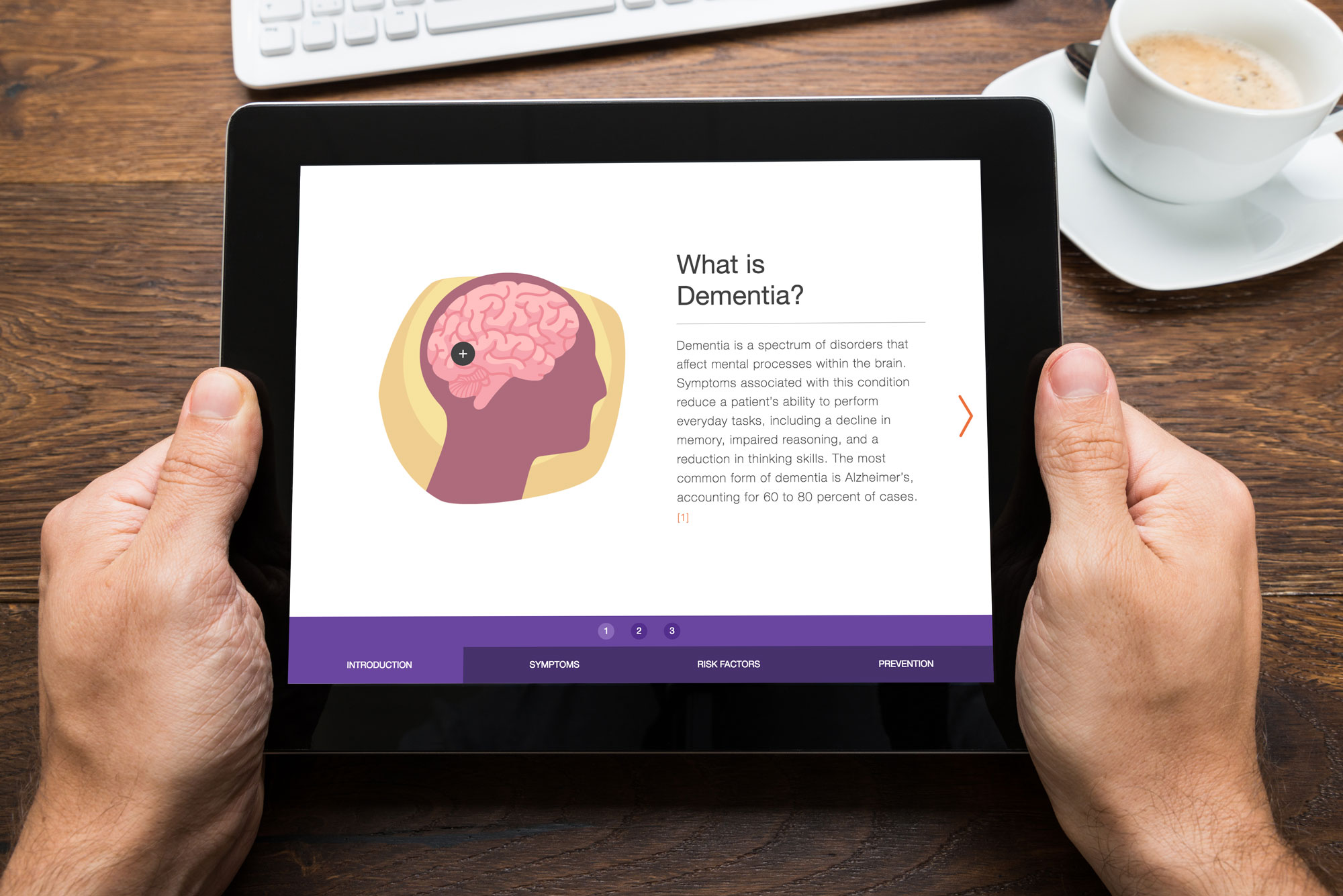
Dementia: An Umbrella Term
When you think of ‘dementia’ — what comes to mind?
Confusion? Memory Loss? Difficulty planning tasks?
Although you’re most certainly correct, today, I think want to clarify the term ‘dementia — because I think it’s really important that we all understand what it actually means to suffer from this condition.
Keyword: CONDITION (vs disease).
Dementia Is An Umbrella Term
For the most part, when we think of symptoms of dementia, we think of Alzheimer’s.
That’s a fair association, considering Alzheimer’s disease accounts for approximately 60 to 80 percent of all dementia cases.
Unlike Alzheimer’s, which is a specific disease, dementia is more of an umbrella term, which includes a wide range of conditions.
Recommended reading: The Difference Between Dementia and Alzheimer’s.
Simply put, dementia is a term that describes a number of neurological, progressive disorders. Each type of dementia is unique — and regardless of which type someone is diagnosed with, that individual’s experience will be unique.
After all, we’re all different in terms of our biological makeup and social environment.
The Symptoms of Various Types of Dementia Overlap
When it comes to the actual symptoms of dementia, there is plenty of overlap between say Alzheimer’s and Vascular dementia. Although there will be some unique symptoms, the main difference is the root cause of one’s dementia. In some cases, dementia can actually be reversed — for example, when someone is suffering from a nutritional deficiency, problems with their thyroid, or even symptoms of depression.
When the following symptoms begin to surface, it’s imperative that you seek medical assistance. This can help you rule out certain possibilities.
So, be mindful of:
- Issues with your memory — when suffering from dementia, it will be challenging to process and remember new information. If you’re a loved one of an individual with dementia, you may notice that they’ve become increasingly forgetful — or are losing objects frequently.
- Reduced ability to communicate — when you’re speaking to someone with dementia, their symptoms can be glaringly clear. They may struggle to find the right words, get lost in their thoughts, and struggle to express their ideas. Issues surrounding one’s mood or behavior may also become increasingly obvious.
- Problems with cognition — dementia significantly affects cognition, so issues surrounding time and place often become apparent. Patients may get up in the middle of the night, thinking it’s time to go to work — or they may become lost in familiar areas.
Just some of the types of dementia that you should be aware of include:
How Do I Know Which Type of Dementia I Have — If Any?
As mentioned, dementia can present itself as any number of symptoms. Meaning, if you are experiencing any level of confusion or memory loss, you need to speak with a healthcare professional to better assess your neurological and overall well-being.
Related: Difference Between Mild Cognitive Impairment (MCI) and Alzheimer’s.
If you believe that you or your loved one are suffering from symptoms outside normal aging, a complete medical assessment will be required. At this time, there is no single test that can diagnose Alzheimer’s specifically. A physician will, however, almost always be able to determine whether or not dementia is a concern.
To assist you — here is an informative guide when choosing a doctor, based on issues surrounding thinking and memory. The BrainTest app can also bring you greater peace-of-mind or provide you with documentation to take to your doctor. Starting today, write down symptoms as they occur. It’s important to keep a log in order to provide your doctor with critical information.

In the meantime, stay up-to-date with our blog, as we focus on the latest in dementia and Alzheimer’s research.